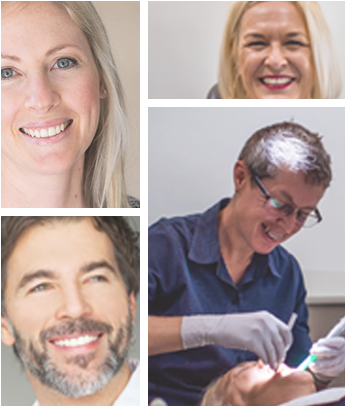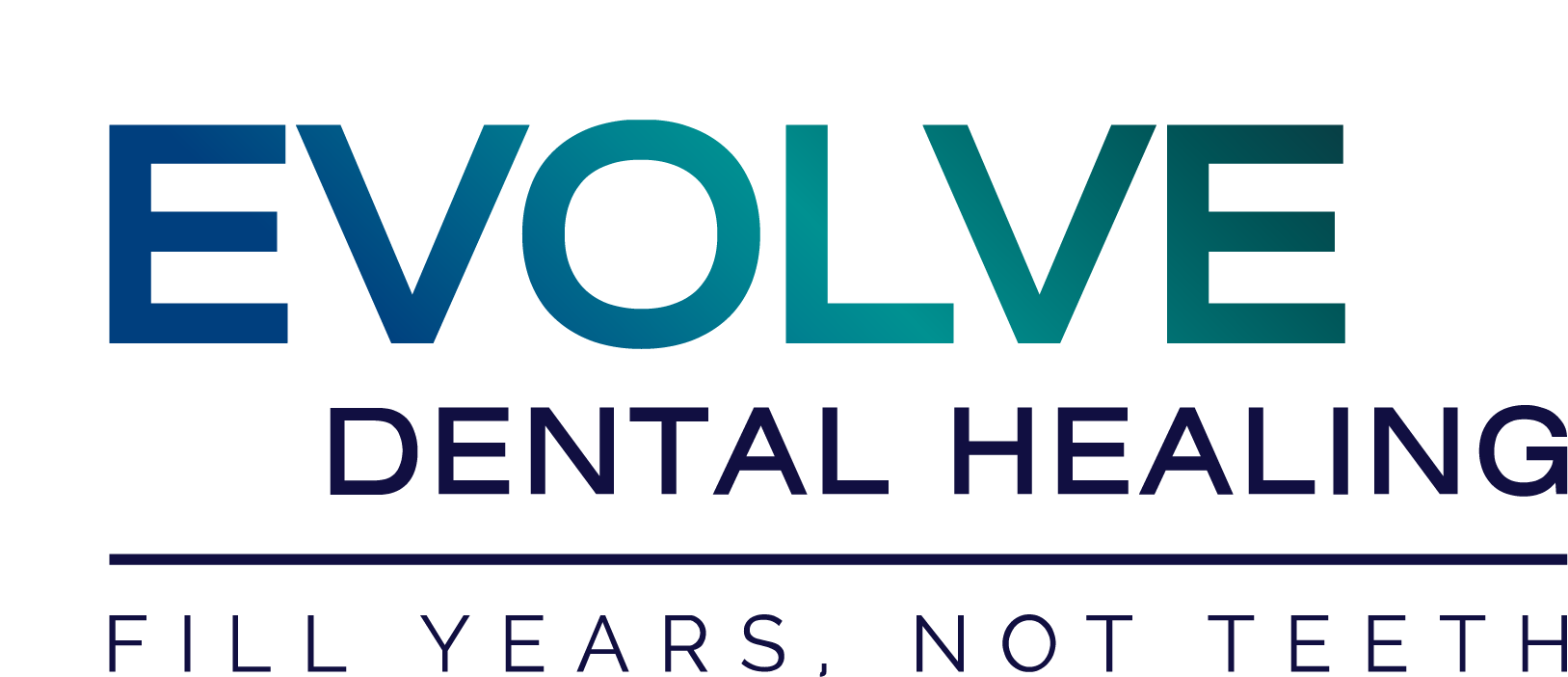How Ageing Affects Dental Health

Ageing And Dental Health
We are living longer and keeping more teeth to later in life, and with this comes a myriad of health and dental issues that are related to the ageing process. There are many myths associated with ageing and so often we are told that the issues that we have are due to our age.
One of the biggest myths about ageing and dental health is the belief that losing your teeth is a normal part of getting older. This is absolutely not true – your teeth should and can last you a lifetime.
Poor oral hygiene habits, on the other hand, can result in tooth loss, gum disease and other serious oral health problems.
As we age the body does change, it needs better care and more regular maintenance and health checks, including dental care.
Unfortunately, many older adults have multiple health issues and are on several medications that can have an impact on the teeth and gums and/or cause dental health problems.
In this blog, Dr Rachel Hall of Evolve Dental talks about some of these issues and what you can do to avoid them or reduce the impact of ageing on your dental health.
Dry Mouth In Older Patients
Dry mouth (poor saliva flow or quality) can be an issue for seniors, which can occur due to medications or medical conditions.
Saliva helps to protect the teeth from cavities and infections.
Dry mouth and reduced flow of saliva mean you will be more prone to oral health problems.
Resist the temptation to suck on sweets or mints to try and stimulate saliva otherwise, your teeth will be subjected to sugar and acid attacks.
Make sure you’re drinking plenty of water, sipped regularly during the due.
And book a visit with your dentist to see what products they recommend to help manage dry mouth, such as saliva stimulating products or artificial saliva gels.
Medical Conditions That Affect Dental Health
Some medical conditions are linked to and can affect the oral health of older patients.
These include high blood pressure, arthritis, cancer, diabetes and cardiovascular disease.
Poor oral health can make some conditions worse, so it is important to let your dentist know if you have any illnesses, so he or she can take certain factors into account when treating you.
Gum Changes As You Age
As you get older, your gums will have a tendency to recede.
Three things that are particularly important to be aware of are
1. Exposed roots and tooth sensitivity.
Your receding gums may expose the root surface of your teeth, which is not protected by tooth enamel.
As a result, you may find increased sensitivity to cold and hot food and drink.
Also, this area of the tooth is more prone to tooth decay as it does not have a protective layer over it – we often recommend placing a protective filling over these exposed surfaces for this reason.
Using a toothpaste designed to help sensitive teeth may relieve sensitivity, but be sure to check with your dentist in case there are more serious issues going on, for example, decay or a damaged tooth.
Exposed root surface means that the roots of your teeth are a potential target for tartar and decay. The root is not smooth like the crown of the tooth so bacteria stick more readily to the surface causing build up or plaque and tartar that can cause gum disease and tooth decay.
2. Older patients are more prone to gum disease.
Untreated gum disease will increase the rate of gum recession and also damage the bone that holds your teeth in which is the number one reason adults loose teeth with age.
However, gum disease can be managed and treated with regular home care and professional dental cleanings to address any active disease and inflammation.
Gums that are red, swollen, sore or bleeding have an active disease – however like heart disease you don’t always have obvious symptoms and it is only through proper tests and diagnostics that it is discovered. So don’t wait for a heart attack aka a painful of a loose tooth before you see the dentist.
Once you are over 40 it is extra important to keep up with your dental routine and have regular professional dental inspections and cleanings because the risk of gum disease accelerates with age.
Tips For Keeping Older Teeth In Good Health
Here are 6 great tips for keeping older teeth in the best shape possible.
1. Avoid Sweet and Starchy Food and Drinks
Both sweet and starchy products are the worst things for your teeth, no matter if you’re young or old. Sugar creates acid that can erode your teeth, and starchy foods cling onto teeth and forms plaque, resulting in a build-up of bacteria.
Not only will you be doing your health huge favour by cutting out sweets and processed carbohydrates, but your teeth will thank you for it too.
Avoid artificial sweeteners like aspartame, which is likely to make you crave more sugar and has been associated with weight gain and increased risk for diabetes, high blood pressure and heart disease.
2. Brush and Floss Every Day
Make sure you continue to brush your teeth twice a day, and floss once a day. Brushing and flossing thoroughly provide a great line of defence against plaque, decay and gum disease.
3. Visit Your Dentist Regularly
By visiting your dentist regularly, it can help you to catch any potential dental problems at their earliest stages. If you delay treatment, you may end up with permanent damage. When you’re at the dental clinic, your dentist can give your teeth a thorough, professional clean, which gets to all the hard spots that you can’t reach and will leave your teeth squeaky clean and your gums nice and healthy
4. If You Smoke, Quit
Smoking can accelerate damage to your teeth and oral tissues by lowering your immune system and reducing the amount of oxygen in the blood. Smokers are especially prone to gum disease, so combined with the normal ageing process, oral health can become a major concern.
5. Keep Dentures Well Maintained
If you wear dentures, make sure you keep them clean and follow your dentist’s special care instructions.
Just like natural teeth, dentures can last a long time if you take good care of them. At the first sign of any soreness, bad breath or discomfort, make an appointment to see your dentist. Regular check-ups are important for denture wearers – your dentist will tell you how often he or she would like to see you.
6. A Well Balanced Diet Rich With Immune Boosting Foods
A healthy, balanced diet will not only make you feel better in the inside, but it’ll help keep your teeth in much better condition too.
Some foods can help to boost your immune system, which can be especially helpful as you age, protecting you against infections and illness – even in your mouth.
Some great immune boosting foods include garlic, coconut oil, leafy greens and spirulina. Vitamin D3 is also fantastic for your immune system and your mental health, yet many people are surprisingly deficient. Make sure you get out for a walk in the sun every day to help reinforce your body’s natural defences.
Keeping your teeth for life is possible – if you care for your health and your smile and that’s why at Evolve Dental holistic dental practice we are here to help you “fill years, not teeth.”
Call us today to find out how we can help you have a healthy smile for life. 07 3720 1811.
-
Dr. Rachel Hall
Rachel is the founder and principal dentist at Evolve Dental Healing with over 30 years experience, practising holistically since 2001. Not your typical dentist, Rachel is a passionate opinion leader, challenging convention to empower people to make better dental and health choices, helping thousands to have healthy natural smiles. A respected writer and presenter on holistic dentistry, health and wellness it is Rachel’s mission to revolutionise the way people look at their dental health.
Talk to us for more details and information
CONTACT US
67 Kenmore Road
Kenmore Queensland 4069
Phone: 07 3720 1811
Fax: 07 3720 1899
Email: info@evolvedental.com.au
OPENING HOURS
Monday – Friday: 7:30am – 5:30pm
References and Citations Mercury & Amalgam Fillings




